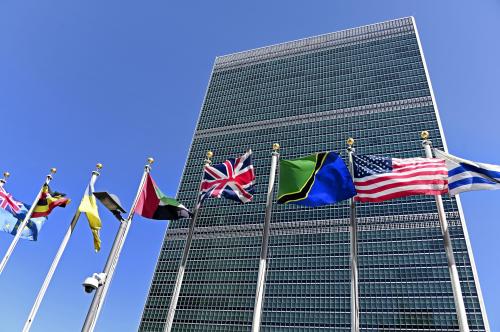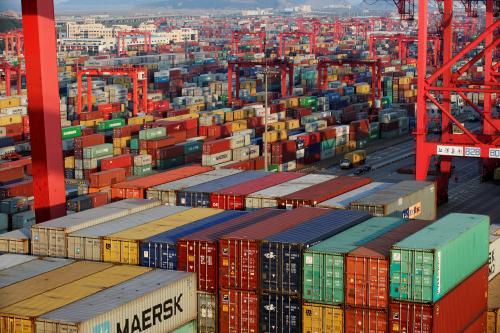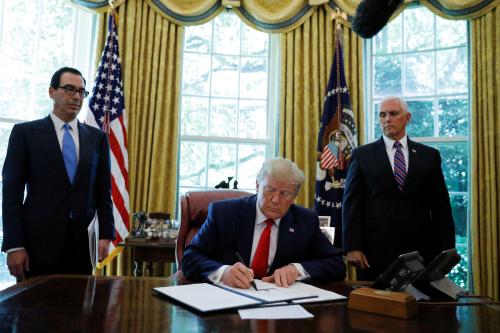No one has ever doubted that President Obama can deliver a well-crafted and carefully modulated speech, and today’s performance at West Point is no exception. The question, as always, is what it means in practice. So here are a few questions that the speech did not address but that U.S. policy must—if only by default.
Petro Poroshenko, the newly elected president of Ukraine, has requested direct U.S. military aid. “I think more aggression is possible,” he said. “And when aggression starts, no sanctions help.” How will we respond to his plea?
Mr. Obama pledges to work with Congress to “ramp up support for those in the Syrian opposition who offer the best alternative to terrorists and a brutal dictator.” Will that support include the kinds of arms that might give them a chance to withstand Bashar Assad’s unrestrained use of his military against heavily populated areas? If so, why didn’t we extend them that assistance a long time ago, when the rebels might have overthrown that dictator, dealing a huge blow to Iran and Hezbollah?
As Mr. Obama says, we have trained hundreds of thousands of Afghan soldiers and policy. But for the foreseeable future, the Afghan government will not have the economic resources to sustain its military. Is the president prepared to fight for the funding needed to sustain what we have built at such a high cost in blood and treasure?
In Egypt, Mr. Obama says, we “can and will persistently press for the reforms that the Egyptian people have demanded.” Notably, he did not say that we will continue to press for those reforms, and for good reason: our policy toward Egypt has been a model of unsteadiness since the Arab Spring began. What has changed, and why should the people of Egypt have confidence in America’s word?
In a speech that runs nine single-spaced pages, Mr. Obama devoted a total of four sentences, scattered through the text, to China—less than what he spent on Burma. In a heavily promoted foreign policy address, here is everything he said about the world’s fastest rising economic and military power:
- “Russia’s aggression toward former Soviet States unnerves capitals in Europe, while China’s economic rise and military reach worries its neighbors.”
- “Regional aggression that goes unchecked—in southern Ukraine, the South China Sea, or anywhere else in the world—will ultimately impact our allies, and could draw in our military.”
- “In the Asia-Pacific, we are supporting Southeast Asian nations as they negotiate a code of conduct with China on the South China Sea, and are working to resolve territorial and maritime disputes through international law.”
- “It’s a lot harder to call on China to resolve its maritime disputes under the Law of the Sea Convention when the United States Senate has refused to ratify it—despite the repeated insistence of our top military leaders that the treaty advances our national security.”
That’s it. What happened to the “pivot to Asia”?
And finally, the logic at the doctrinal heart of the speech: if you reject both interventionism and isolationism, the only remaining option is the Obama foreign policy. But who really believes that “every problem has a military solution”? That is a classic straw man. The real question is what lies between direct military involvement and multilateral suasion. If Poroshenko is right and sanctions are not enough, are we prepared to give him the tools he needs to defend his country?
The world we now inhabit is the world that the United States of America took the lead in building after World War II. It is a world in which our interests and values have a better chance of flourishing than in any of the alternatives. And it is a world that requires American effort and sacrifice to sustain. If the United States is, as Mr. Obama insists, the “one indispensable nation,” are we prepared to do what is necessary to maintain that role?



Commentary
The Questions President Obama Failed to Address In His Foreign Policy Speech at West Point
May 28, 2014